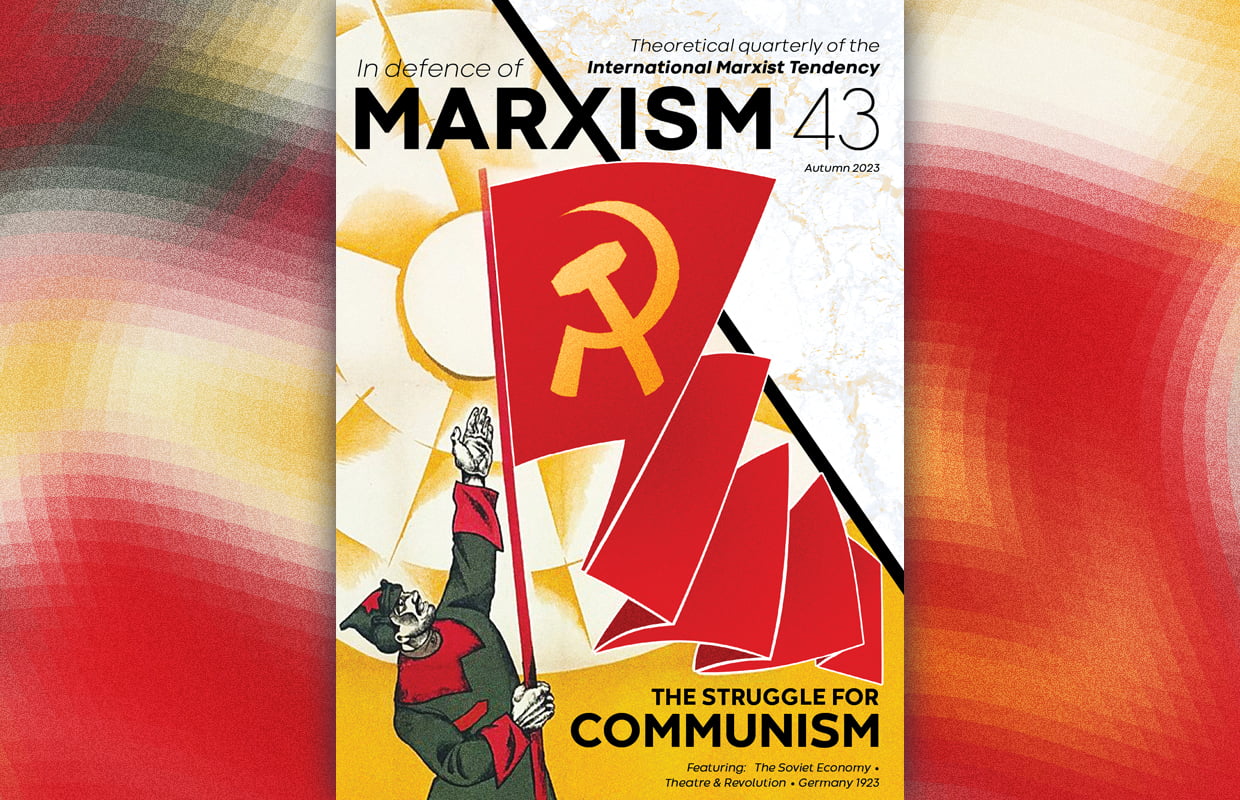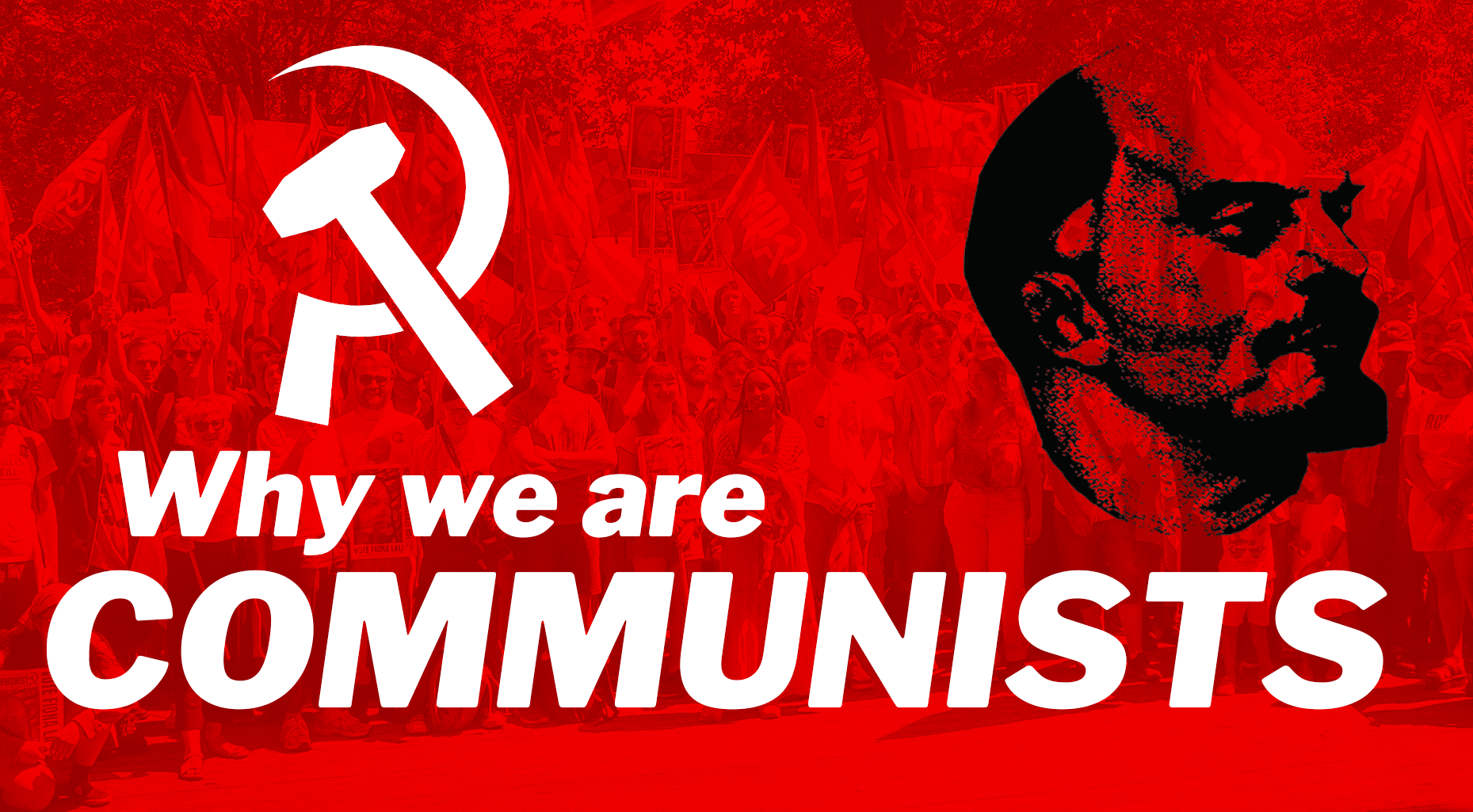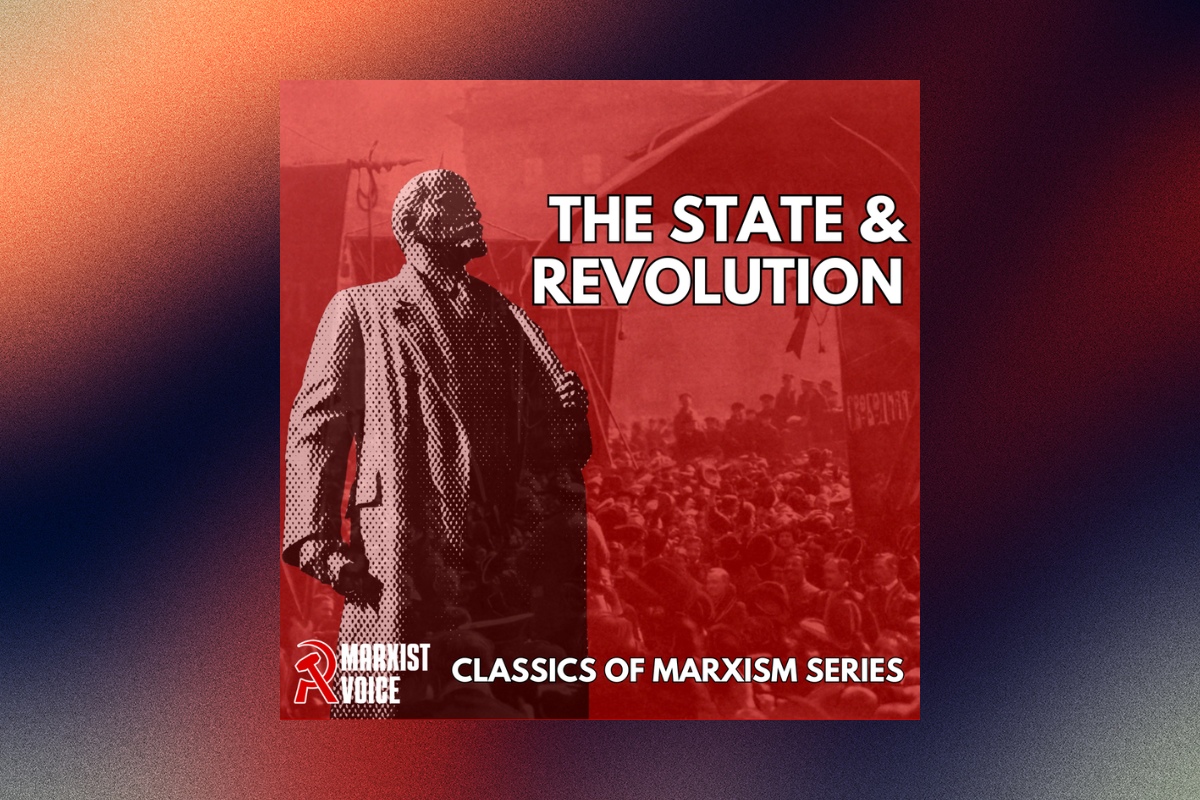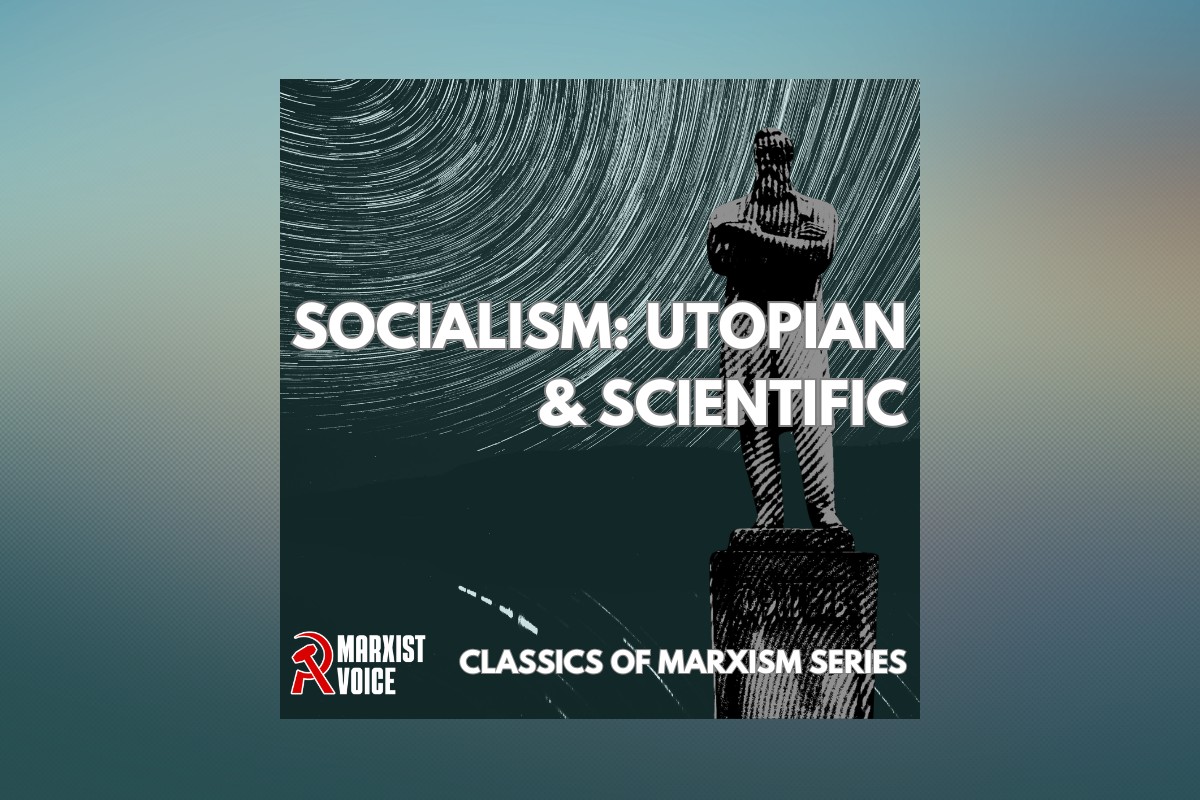Socialist Appeal and the International Marxist Tendency are proud to present the autumn 2023 edition – issue 43 – of the In Defence of Marxism (IDOM) theoretical journal, which is available to purchase now.
We publish below the latest IDOM editorial by editor-in-chief Alan Woods, which focuses on the struggle for communism, with articles on: the history of the Soviet economy; theatre and the Russian Revolution; and the failed German Revolution of 1923.
This, we hope, will serve to educate a new generation of communists, who are entering into the struggle today.
Subscribe here, or buy the latest issue of the magazine here.
And if you want to learn more about all these questions, and more, then grab a ticket to Revolution Festival 2023, the school of communism, taking place in central London next weekend, from 10-12 November.
With talks on all the topics covered in the latest IDOM magazine – including ‘why we are communists’, the Soviet economy, the German Revolution, art and revolution, and much much more – #RevFest2023 is the event for activists wanting an inspiring Marxist education, in order to prepare for the fight for communism today.
Head to www.revolutionfestival.co.uk straight away for tickets, timetable, and more info.
🔗 https://t.co/QoVe4tIORQ pic.twitter.com/fwTdpZQd92
— Socialist Appeal (IMT) (@socialist_app) September 29, 2023
Are you a communist?
By Alan Woods
The ‘Are you a communist?’ campaign of the International Marxist Tendency is producing remarkable results everywhere.
Our success is noted by our friends, who are naturally delighted. It is equally noted by our enemies, whose displeasure is greatly increased because they simply cannot understand it.
This incomprehension is not hard to explain. These people have absolutely no understanding of the nature of the period through which we are passing, and consequently are in a profound crisis.
The reformists and the Stalinists are in crisis. And they are united in their hopeless confusion by the myriad of sects that swarm around the periphery of the labour movement.
It is precisely their ideological bankruptcy that has landed the whole of the self-styled ‘realists’ of the Left in a mess. Their contempt for theory renders them totally incapable of understanding the real processes at work in society and of reacting to them effectively.
Consequently, they have drawn the most pessimistic conclusions from the present situation.
In all this lamentable spectacle of defeatism, scepticism and demoralisation, the International Marxist Tendency stands out as an organisation that bases itself firmly on Marxism and Leninism, and that pays serious attention to theory.
Our strength lies in the power of our ideas. Lenin stressed that without revolutionary theory the building of a revolutionary organisation is impossible. This idea is one thousand percent correct.
A genuinely revolutionary tendency is one that stands shoulder to shoulder with the most advanced elements of the workers and youth. It shares their experiences – of defeats as well as victories. In this, we are no different to any other consistent class fighter.
Only in one respect do we differ from all other tendencies: in the clarity of our programme and perspectives; our ability to understand the nature of the stage through which we are passing, and to accurately foresee the future line of march.
Marx and Engels explained this very clearly and succinctly in the founding document of our movement, The Communist Manifesto.
In the section Proletarians and Communists, we read the following:
“In what relation do the Communists stand to the proletarians as a whole?
“Communists do not form a separate party opposed to the other working-class parties.
“They have no interests separate and apart from those of the proletariat as a whole.
“They do not set up any sectarian principles of their own, by which to shape and mould the proletarian movement.
“The Communists are distinguished from the other working-class parties by this only:
1. In the national struggles of the proletarians of the different countries, they point out and bring to the front the common interests of the entire proletariat, independently of all nationality.
2. In the various stages of development which the struggle of the working class against the bourgeoisie has to pass through, they always and everywhere represent the interests of the movement as a whole.
“The Communists, therefore, are on the one hand, practically, the most advanced and resolute section of the working-class parties of every country, that section which pushes forward all others; on the other hand, theoretically, they have over the great mass of the proletariat the advantage of clearly understanding the line of march, the conditions, and the ultimate general results of the proletarian movement.”
Revolutionaries and reformists
Communists understand that without the day-to-day struggle for advances under capitalism the socialist revolution would be impossible. The working class in general can only learn from the experience of the class struggle.
It is our duty to play the most active role in that struggle, and to help the workers to draw revolutionary conclusions from it. Ultimately, the complete realisation of the fight for a better life can only be achieved through the seizure of power by the working class, and the overthrow of the dictatorship of the banks and monopolies.
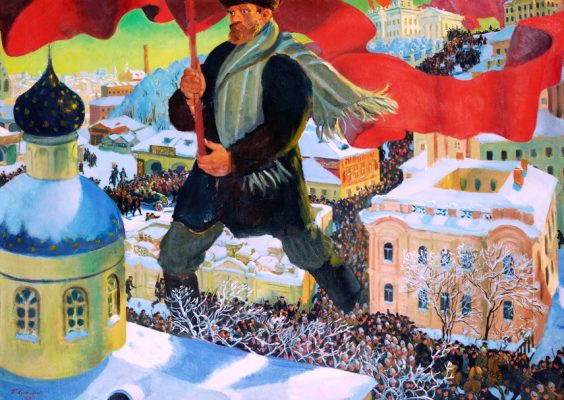
As revolutionaries, we stand opposed to reformism. But our difference with the reformists is not that they stand for reforms and we do not. Quite the contrary. We will fight for any reform that tends to improve the lot of the working class.
Our criticism of the reformists is precisely that they do not carry on a consistent fight for the workers’ most elementary demands. They seek to do deals with the bosses, to avoid conflict, to put the brakes on the movement and to conciliate and surrender at the earliest opportunity.
Internationalism
The Manifesto also stresses that communists are internationalists. Communism is international or it is nothing. The struggle against capital transcends all artificial national boundaries. Our slogan is: “Workers of all countries, unite!”
This is even more necessary today than it was in Marx’s day. We stand for the sacred unity of the working class, above all divisions of nationality, language, race, colour, gender, sexuality, or religion.
For that reason, we are implacably opposed to reactionary nationalism and racism, and also to so-called identity politics and any other poisonous ideology that seeks to divide the proletariat and divert its attention from the central struggle: the class struggle to overthrow capitalism – the only way to abolish all forms of oppression and exploitation.
The great October Revolution in Russia was carried out under the banner of proletarian internationalism. But decades of Stalinist bureaucratic degeneration had a fatal effect on the communist parties internationally. The leaders of the communist parties departed from the ideas of Lenin, with catastrophic results.
Now they have nothing left of communism, except an empty name. Most have degenerated into mere reformists. This has provoked serious conflicts with the rank and file, who wish to defend real communism. The time has come to call for a return to a genuine communist policy: for a return to the policies of Lenin.
The present conditions are ripe for such a change. The world crisis of capitalism is opening up a new and stormy period of class struggle, which demands a return to a genuinely revolutionary and proletarian internationalist policy.
Just received my digital copy of IDOM issue 43. Particularly interested in these two articles on the Soviet economy and ‘Theatre and Revolution’. I’m constantly amazed at just how good the IDOM is. All killer, no filler. pic.twitter.com/uPdEemEPx7
— Stan Laight (@tristanlaight) October 17, 2023
Successive stages of revolution
The revolutionary process does not emerge all at once, fully armed, like Athene from the head of Zeus. It unfolds in stages, following a process of successive approximations.
As Trotsky points out in The History of the Russian Revolution, this process manifests itself as the rise and fall of different parties and leaders, in which, he says, the more radical always replaces the less.
The first wave of radicalisation that followed the collapse of 2008 brought to the front what you might call the left reformists, or at least some leaders that expressed themselves in very radical language.
In Greece, there was the sudden rise of SYRIZA and Alexis Tsipras. In Spain, there was a similar development with Podemos and Pablo Iglesias. In the United States there was the mass movement around Bernie Sanders.
And in Britain the election of Jeremy Corbyn as leader of the Labour Party propelled hundreds of thousands of people into politics and unnerved the bourgeoisie, who thought they had lost control of Labour forever.
The hopes of the masses were raised to the heights – only to be dashed. In every single case, in the moment of truth, the ‘left’ leaders capitulated and the movement was destroyed.
How could this happen? Of course, we cannot ignore the individual failings of these leaders – their cowardice and capitulation. But this was not the real reason.
It was that the fact that left reformists by their very nature are incapable of carrying the fight to the end. In fact, they really agree with the right wing on the central point: they all accept the inevitability of capitalism; they accept the existing system.
For this reason, betrayal is inherent to all brands of reformism, irrespective of the personal motives and desires of individuals. The capitulation of the so-called ‘Left’ was therefore inevitable and predictable in advance.
Vacillation and cowardice here is not a matter of personal psychology. It is buried deep in the DNA of left reformism, which always backs away from a decisive struggle and surrenders to the right wing.
A period of selection
Those who had illusions in the left reformists are now thoroughly demoralised. They imagine that all is lost and spend all their time moaning about the situation, which they all agree is hopeless.
Many of the old generation are infected with the disease of scepticism and pessimism, for which no antidote exists. Consequently, most of them are fit for nothing. They are completely blind to what is really happening in society.
What, then, is the real meaning of the period we have just lived through? It was a period of preparation, in which an important layer of workers and youth passed through the school of left reformism and learned some painful lessons. It was therefore a necessary process of clearing out discredited ideas and of mercilessly exposing the limitations of left reformism.
But this was preparing the way for the rise of a genuine communist tendency. We see clear evidence of this in many countries, including the United States. There is a growing number of young people in particular that are looking beyond left reformism, beyond Bernie Sanders, beyond Tsipras, beyond Corbyn.
As a result, many of the most advanced youth no longer wish to be associated even with the word ‘socialism’, which they identify with cowardly capitulation to the present system. They are seeking a clean banner, with clear and unambiguous dedication to the class war and social revolution. They want communism, and nothing else will do!
Mostly they have arrived at these conclusions instinctively. They have not read the three volumes of Marx’s Capital, or maybe even The Communist Manifesto. But they are communists, heart and soul, who fervently desire to participate in an active and organised way in the revolutionary struggle.
Only a hopeless pedant will be offended by their lack of Marxist education. Ideas can be easily learned from books. But mere book-learning can never furnish us with the enthusiasm and revolutionary spirit, which is the flaming soul of proletarian revolutionism.
This is an extremely important development, which the IMT has succeeded in connecting with.
What are communists fighting for?
The period we have entered into will be a period of storm and stress. The objective situation is not only mature for socialist revolution; it is rotten-ripe. But because of the weakness of the subjective factor, it will be prolonged in time, with many ups and downs.
There will be many advances and also many defeats. But through all these events, the working class will learn. The material conditions are being prepared for a rapid change in the consciousness of the masses. We can see evidence of this already.
New issue of IDOM magazine coming out very soon! In this issue – insight into Soviet Economy and how it was organised, a piece on Soviet theatre and the figure of Konstantin Stanislavsky, and an in-depth analysis of catastrophe of German Revolution in 1923. Pre-order now! pic.twitter.com/TpgRKkuDYF
— Wellred Books Britain (@WellredBritain) October 4, 2023
If I ask you, what are we really fighting for, you will probably answer: we are fighting for jobs, for houses, for good healthcare and pensions and so on.
Of course, all these things are necessary. But they are merely the bare conditions of existence. That is the first step for the creation of a new society. But it is only the first step. The real revolution comes only after these things have been attained.
The controversy over artificial intelligence poses the future of capitalism in the starkest terms. Under capitalism, the introduction of new technology will inevitably signify the destruction of a large number of jobs – not just mechanical work, but also many skilled and semi-skilled occupations. It threatens the livelihood of nurses, accountants, even surgeons. The result will be social upheaval on a massive scale.
But from a communist perspective, these innovations have an entirely different meaning.
For 10,000 years, culture has been the monopoly of a tiny minority. The great majority have been reduced to the role of slaves in one form or another: the “hewers of wood and drawers of water”, to quote the Bible.
But under a harmonious socialist plan of production, the application of artificial intelligence and other new technology will serve to revolutionise the conditions of life. All the drudgery can be taken out of work, and the hours of labour can be dramatically reduced to an absolute minimum.
This will provide the real material basis for achieving a genuine emancipation of the human race. A dramatic reduction of the hours of work is the prior condition for a genuine cultural revolution.
For the first time in history, the doors will be flung open to the masses to really grasp the great treasures of culture which have been denied to them.
The great French utopian socialist, Charles Fourier, defined socialism as the society that makes actual the potential of the human race. That is what we are fighting for.
Our aim is to create a paradise in this world: a new world, in which life will acquire an entirely new meaning. And for the first time, men and women will be able to raise themselves to their true stature.
That is the only cause worth fighting for.
That is why we are communists.

